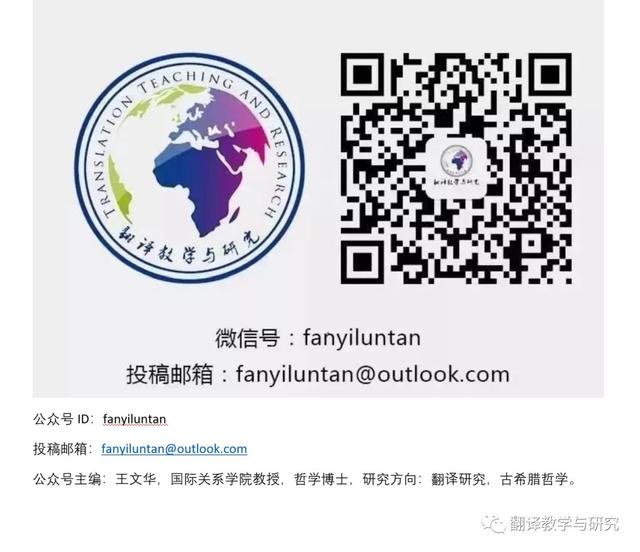美式英语和英式词汇(语言纽约时报让美国人摸不着头脑的英式英语)
本文转自:英语教学与研究
LONDON — It can be as insignificant as the slide from “oops” to “whoops.” It can be as blunt as the shift from “restroom” to “toilet.” It can be no more than the adaptation from “good job” to “well done.” But whatever precisely it is, the adjustment from American to English is momentous. A new nation was born in 1776, and a new language was born with it.
伦敦——从英语到美语的转变,有时是“哎呦”的说法从“oops”变成“whoops”一样不起眼,有时是把“厕所”从“restroom”变成“toilet”一样的天壤之别。它也可以像把“干得漂亮”的说法从“good job”变成“well done”一样,只是改编一下。但无论具体是怎样,这都是一个重大转变。一个新的国家在1776年诞生之际,一门新的语言也随之诞生了。

Having become an American, I returned to England a few years back after an absence of 31 years. I expected to speak the language. I was wrong. Somewhere in the interim the letter aitch had become “haitch,” with the result that spelling out my family name (surname) was painful. You had somehow morphed into the ghastly reflexive “yourself,” as in, “And for yourself?”
几年前,已经成为美国人的我回到了阔别31年的英国。我打算说英国话来着。但我错了。在我离开的31年间,字母H在某些地方的发音已经从“哎吃”(aitch)变成了“嗨吃”(haitch),致使我很难读出自己的姓氏。“You”(你)不知怎地已经演变成了可怕的反身词“yourself”(你自己)。例如,“And for yourself?”(那你自己呢?)
Virgin Media, and Sir Richard Branson’s monumental ego, had taken a stranglehold on the country and its lexicon, with the result that a cheesy, simpering, faux-friendly, off-key, faintly Essex hail-well-met affectation (Never just plain “Hello,” always “Well, hellooo there”) was near universal. I have found that it never stops grating. In the toilet of a Virgin train, an announcement in that voice asks you not to flush tampons, old phones — or your dreams. You get the picture.
维珍媒体(Virgin Media)和理查德·布兰森(Richard Branson)爵士的极端自负深深影响这这个国家和它的词汇表。其结果是,给人以低级庸俗、装疯卖傻、虚情假意、荒腔走板之感,还带着点埃塞克斯(Essex)式自来熟的矫揉造作(绝不会平铺直叙地说出“Hello”[你好],而是把“嘿,Well, hellooo there[你好哦]挂在嘴上)几乎无所不在。我发现,这种让人火大的矫揉造作永远不会有所收敛。在维珍公司运营的火车上,卫生间里的提示语以同样的腔调要求你别把卫生棉条、旧手机——或者你的梦——扔进马桶冲走。你懂的。
I was at an event the other day. An English woman was presenting a documentary movie on the Arab Spring. She talked about the incredible commitment and courage of the young people behind the uprisings. “When I look at them, I am in awe,” she said, “I realize most of us are such weeds. Yes, we really are weeds.”
前不久我参加了一个活动。有位英国女性在介绍一部关于阿拉伯之春(Arab Spring)的纪录片。她谈到了这场运动背后的年轻人所表现出的无以伦比的决心和勇气。“看着他们的时候,我感到敬畏,”她说,“我意识到我们中的大多数人都这么像weeds(杂草),没错,我们真是杂草。”
Unease was palpable in the cinema (movie theater) as the extent of amassed weediness was absorbed by the audience. There was a little awkward shuffling. Weed? I found my mind turning, as it often does, to what the best translation might be. Wimp came to mind. Wuss did, too, for a little more intensity. We’re just a bunch of wimps and wusses.
当这么多“杂草”钻进观众耳朵的时候,电影院里弥漫着明显的不安。人们尴尬地动来动去。杂草?像往常一样,我的脑筋转了起来,琢磨着把它翻译成什么才最恰当。我想到了“懦弱无用之人”(wimp)。稍微一使劲儿,又想到了“胆小鬼”(wuss)。我们就是一群懦弱无用之人和胆小鬼。
Cheers to that. Cheers to anything, in fact. It’s a toast, it’s a farewell. It’s whatever you want it to be. Yeah, cheers, mate.
为此cheers(欢呼)吧。事实上,cheers可以用在任何地方。它是祝酒辞,也是告别辞。它是你想让它成为的一切。噢,cheers(再见),朋友。
Catch you later, dude.
回头见,伙计。
People in England are nice. They’re lovely, just lovely, another of those words that’s everywhere in a different way. See you tomorrow, then. “Lovely.”
英国人是友善的。他们很lovely(可爱),“lovely”一词同样有着五花八门的用法。那么,明天见。“Lovely。”(好啊)
My kids, New York raised, started on me from the moment we touched down. “Baggage REclaim?” they asked at Heathrow. “Are you serious?” Well, um, um (a little British throat-clearing to get them used to the new scene), yeah. So, “Baggage Claim” had become “Baggage Reclaim,” on what grounds it was not clear. There you had it. Oops to whoops. And then, driving into London and passing a petrol (gas) station, the incredulity of my son: “They don’t actually spell tires with a ‘y,’ do they?”
我的孩子们以前都生活在纽约。从我们乘坐的飞机降落在英国国土上开始,他们就一直在责问我。“Baggage REclaim?”他们在希思罗机场(Heathrow)问道,“你是认真的吗?”这个,嗯,嗯(以英国人的方式稍微清清嗓子,好帮他们适应新状况),是的。这么说,出于某些尚不清楚的原因,“Baggage Claim”(行李领取处)变成了“Baggage Reclaim”(行李收回处)了。情况就是如此。Oops不也变成whoops了嘛。接着,在车子驶入伦敦、经过一个加油站时,我儿子疑惑地问道:“他们拼写‘轮胎’(tire)的时候不用‘y’吧?(即tyre。——译注)”
They do, darling, they do. And they say “maths” not “math.” And they “pop” a signature onto a document, and they “pop” a dish in the oven, and they “pop” in — you can scarcely move for all the popping going on. They have things called anoraks and plimsolls — you don’t want to know. They “get cracking,” in a soundless way, and they actually have a dessert called “Spotted Dick” (often served with golden syrup and custard); and cheese comes after dessert. And they don’t have mail boxes, sweetheart, those red things are letter boxes (into which you pop your mail, if you ever did that, which you don’t, being on WhatsApp).
他们用的,亲爱的,确实是用的。而且,他们把“math”(数学)说成“maths”。他们用“在文件上pop一个签名”,“把菜pop进炉子”里,他们上你家串门叫“pop in”——“pop”无处不在,简直不给人喘息的机会。他们还有叫做“anorak”(皮猴)和“plimsoll”(懒汉鞋)的东西——不解释了,你是不会感兴趣的。他们把不声不响地“行动起来”叫做“get cracking”。而且,他们居然有一种甜点叫做Spotted Dick(通常配有金黄色的糖浆和奶黄);他们吃完甜点再吃奶酪。他们是没有“mail box”(邮箱)的,甜心,那些红色的东西叫“letter box”(信匣子)(你可以把信“pop”进去,但是现在既然有了WhatsApp,你大概已经不这么做了)。
Idioms are equally impenetrable. The culture wars, of course, have come to Britain. Even Black Friday shopping mania has come to Britain, with or without Thanksgiving. There’s endless flux, but differences endure. You read things like, “White-van man does not eat braised endive.” White-van man would be the English guy who votes for the right-wing U.K. Independence Party and who hates all the immigrant-loving urban eggheads driving Volvos. Rough translation: “Joe the plumber does not eat broccoli.” That’s very rough. As you will have gathered, the ocean is immense. Globalization has its limits.
英国的成语同样令人费解。文化战争当然已经蔓延到英国。即使是黑色星期五的购物狂潮也波及这里,无论他们过不过感恩节。文化源源不断地涌入,但永远存在差别。你会读到,“疯狂驾驶白货车的男子不吃炖菊苣。”驾驶白货车的男子(white-van man)指的是那些人:他们投票支持右翼的英国独立党(U.K. Independence Party),并且憎恨所有开沃尔沃的热爱移民的城市蛋头(egghead,美语俚语,对知识分子的蔑称。——译注)。粗略翻译过来就成了:水管工乔(Joe)不吃西兰花。这确实非常粗略。你可能也看出来了,简直是差了十万八千里。全球化也有无能为力的时候。
Cell is mobile. Two weeks is a fortnight. Silverware is cutlery. And the flat that costs two million quid (three million bucks) with no lift is an overpriced London apartment with no elevator.
在这里,人们把“cell”(手机)叫做“mobile”(移动电话)。两周叫做“fortnight”(十四天)。200万quid(英镑)一套(也就是300万buck[美元])、没有“lift”的“flat”,其实就是一套定价过高的、没有“elevator”(电梯)的“apartment”(公寓)。
Don’t exaggerate, you will tell me. In a way you’d be right. London glides into New York more easily than into Birmingham. We get each other. But this is less than half the trans-Atlantic story. Language demands a different character of us on either side of the pond. That’s profound.
你可能会说,别夸张了。从某种意义上讲,你说的可能没错。伦敦与纽约的差距比它与伯明翰的差距要小。我们能理解对方。但这只是冰山一角。语言要求我们在大洋两岸展示出不同的性格。这是一种深刻的区别。
I guess that for me, if there’s one word on which the differences hinge, it would be “Sure.” In England, I think of it in terms of prudence, as in, “Are you really sure?” In America, it’s the beautiful, give-it-a-whirl, up-for-anything embrace of the unknown.
我想,对于我来说,如果有一个词最能体现美语和英语的区别,那就是“sure”。在英国,我认为是它代表着谨慎,比如,“Are you really sure?”(你真的确定吗)但在美国,它则代表着一个积极热情、大胆尝试,愿意拥抱未知的态度。
Will you take a road trip (drive) with me across the country, babe?
你愿意和我驾车穿越美国吗,亲爱的?
“Sure.”
“Sure.”(好呀)

免责声明:本文仅代表文章作者的个人观点,与本站无关。其原创性、真实性以及文中陈述文字和内容未经本站证实,对本文以及其中全部或者部分内容文字的真实性、完整性和原创性本站不作任何保证或承诺,请读者仅作参考,并自行核实相关内容。文章投诉邮箱:anhduc.ph@yahoo.com






